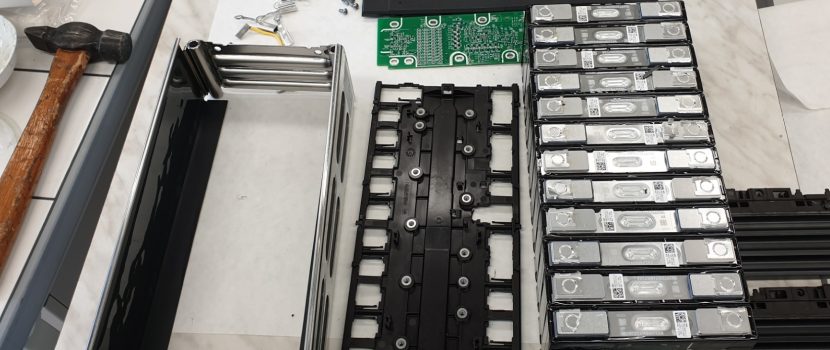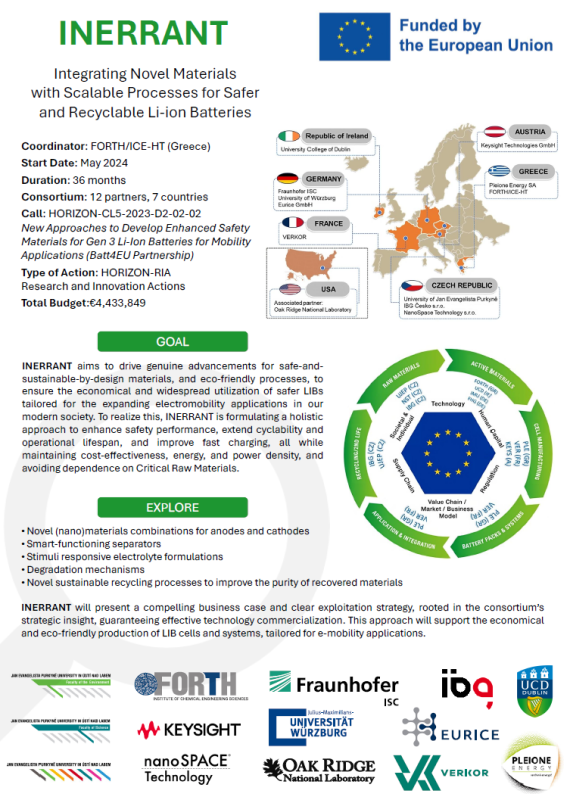
New Horizon Europe Project at UJEP “Integrating Novel Materials with Scalable Processes for Safer and Recyclable Li-ion Batteries” (INERRANT)
The Faculty of Environment in collaboration with the Faculty of Science, J. E. Purkyne University in Usti nad Labem, obtained funding in the call “New Approaches to Develop Enhanced Safety Materials for Gen 3 Li-Ion Batteries for Mobility Applications (Batt4EU Partnership)” funded by the Horizon Europe Framework Programme (HORIZON-CL5-2023-D2-02-02). A team led by Jiri Orava is part of an international research group consisting of 12 participants, namely, Foundation for Research and Technology Hellas, Patras, Greece (main coordinator), Pleione Energy SA (Greece), University College Dublin (Ireland), Fraunhofer Institute for Silicate Research ISC (Germany), Julius Maximilians Universität Würzburg (Germany), IBG Česko s.r.o. (Czech Republic), NanoSpace Technology s.r.o. (Czech Republic), Keysight (Austria), Verkor (France), Eurice (Germany) and a non-beneficiary partner Oak Ridge National Laboratory (USA).
INERRANT will deal with the development of safe and sustainable materials for lithium-ion batteries (LIBs), essential for powering our modern world. Our mission aligns with the technical and economic benchmarks given in the 2030 European SET-plan, targeting Gen 3 LIB technologies that reduce dependence on critical raw materials.
Our holistic strategy will enhance safety, boost performance and improve charging capabilities for LIBs designed for e-mobility. The project will tackle scientific and technological challenges by developing functional materials, sustainable processes, and understanding pertinent interfacial phenomena and degradation mechanisms.
Key innovations will include the development of:
- (Nano)materials for anodes and cathodes.
- Nanofibre-based separators for smart and early protection.
- Stimuli-responsive electrolytes for rapid defence against disturbances and mitigating degradation processes at the cathode.
- Eco-friendly recycling to improve the purity of recovered metals from end-of-life LIBs.
The UJEP team, alongside the Czech industrial partners, will significantly contribute to the development of smart separators and recycling processes. The project will employ novel electrochemical characterization methods and operando spectroscopies, ensuring traceable calibrations and integrating machine learning methodologies for predictive LIB cell ageing.
Our scalable fabrication methods, leveraging existing pilot lines and safety protocols, will facilitate a swift progression to Gigafactory-relevant scales. Such an approach supports the economical and eco-friendly production of LIB cells for e-mobility.

